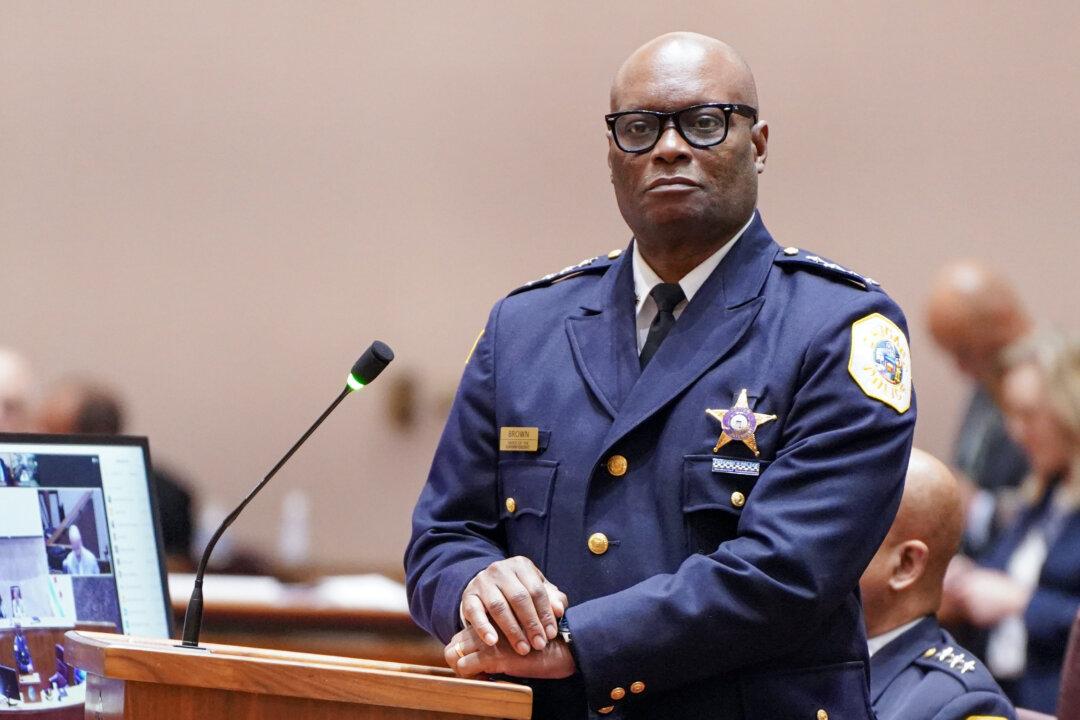CHICAGO—As Chicago aldermen took turns questioning Police Superintendent David Brown about an alarming crime wave on Friday, Brown said police officers had done their utmost and that the blame should be directed at the court system which had sent too many violent offenders back on the street.
About 20 aldermen requested the special city council meeting with Brown following two violent weekends that saw 24 people killed and 114 injured in Chicago. The day before the meeting, a 1-month-old baby and a 9-year-old girl were both shot in the head; another 8-year-old girl was shot in the arm.





